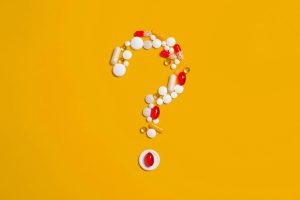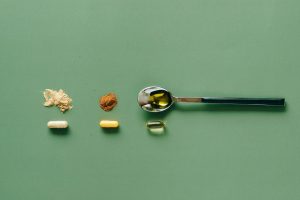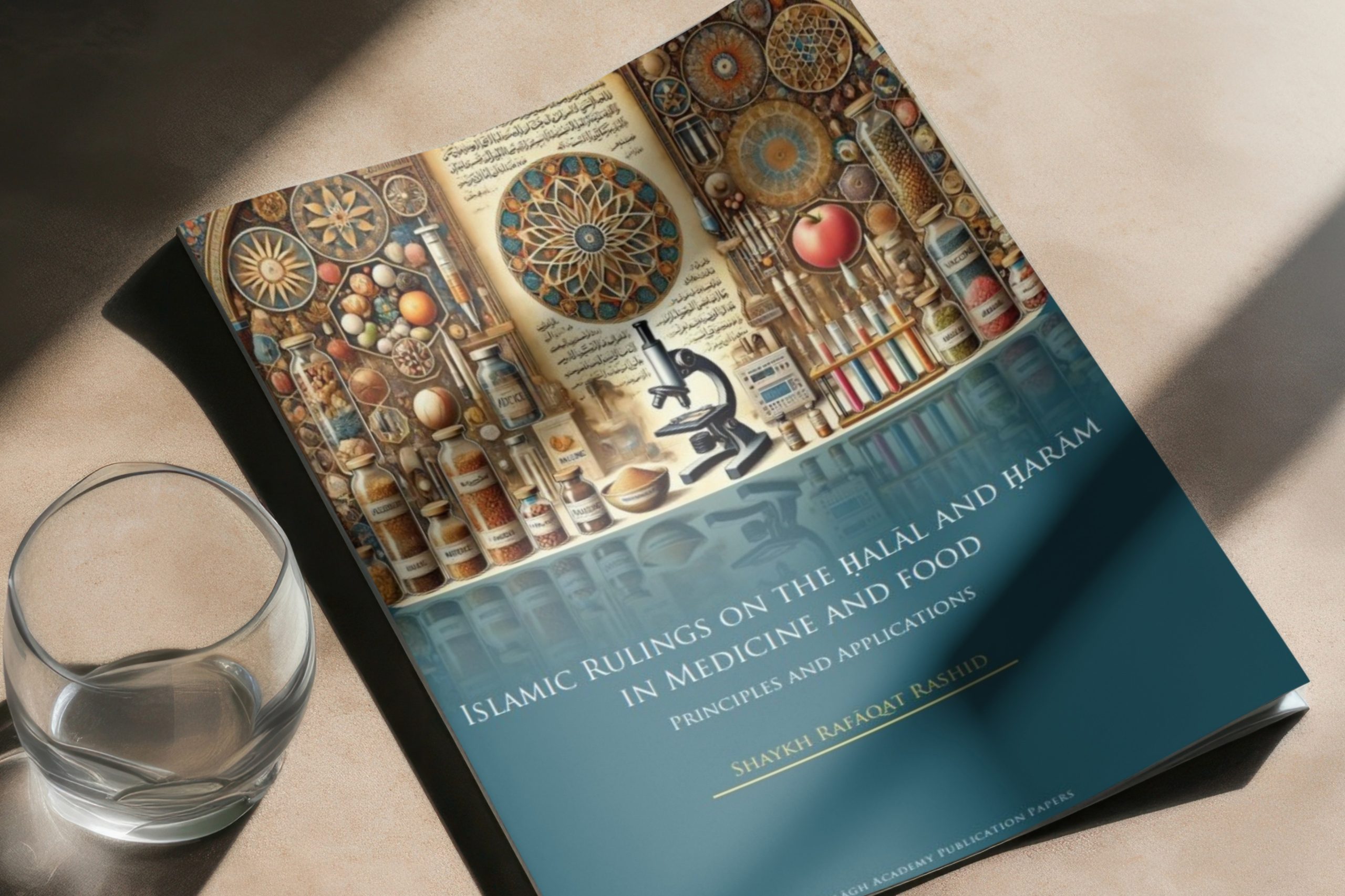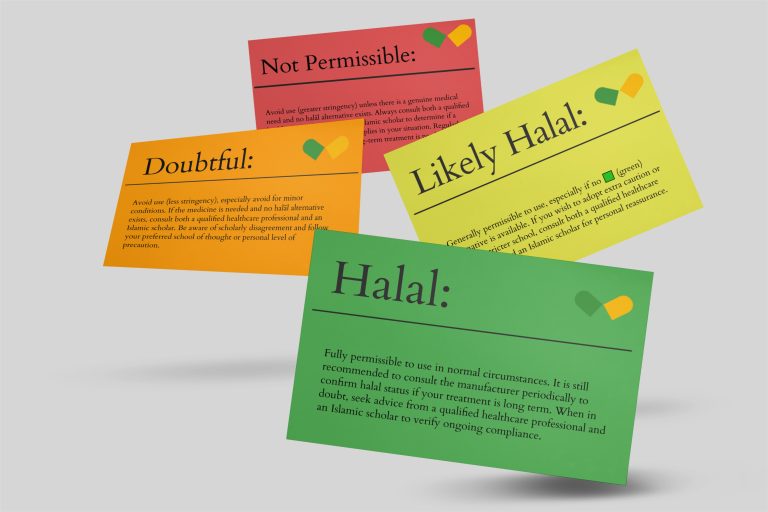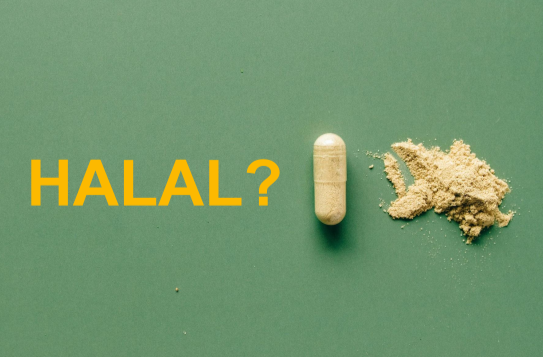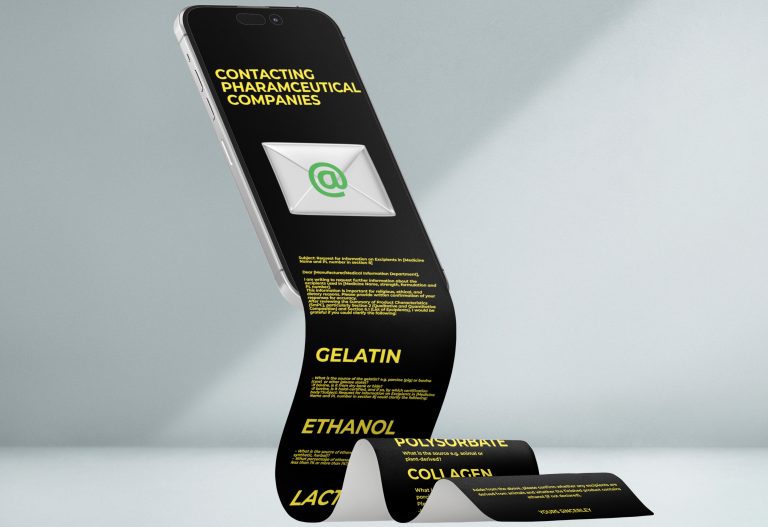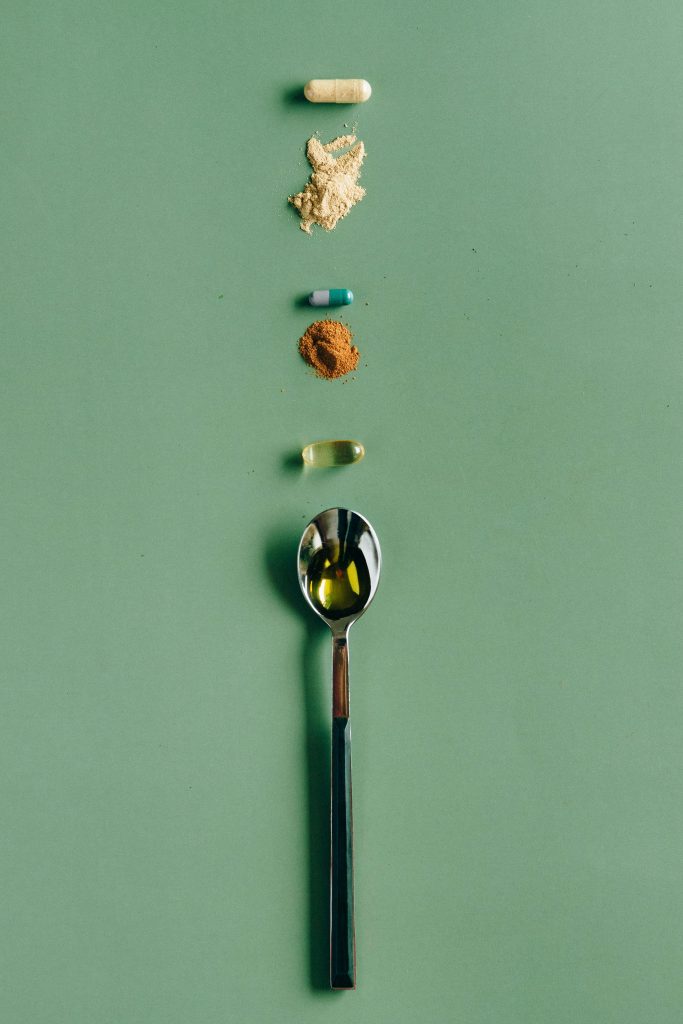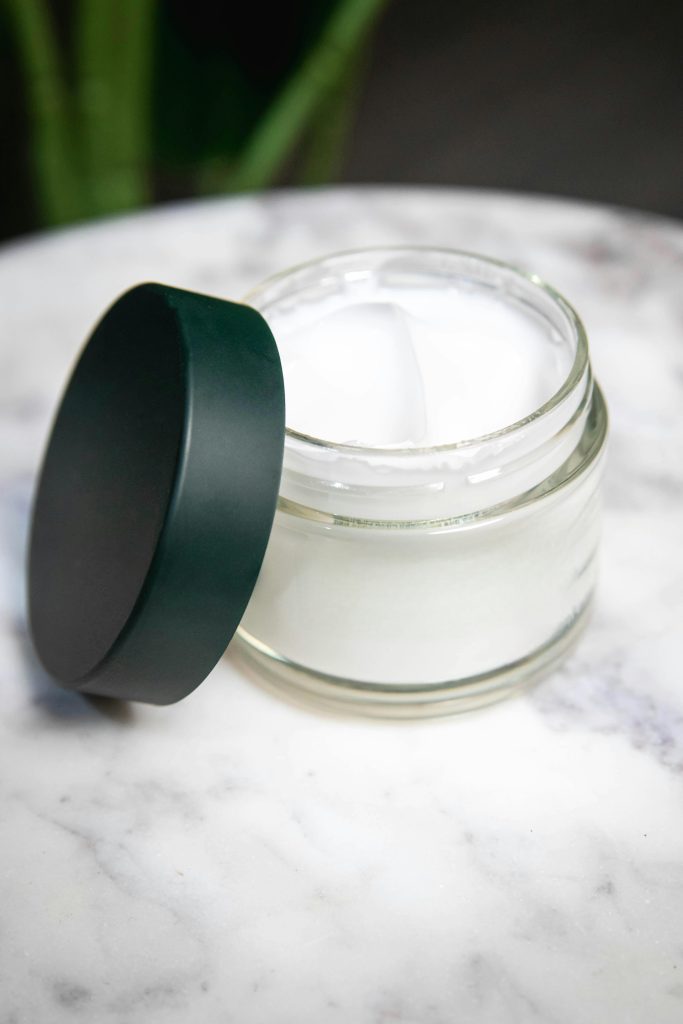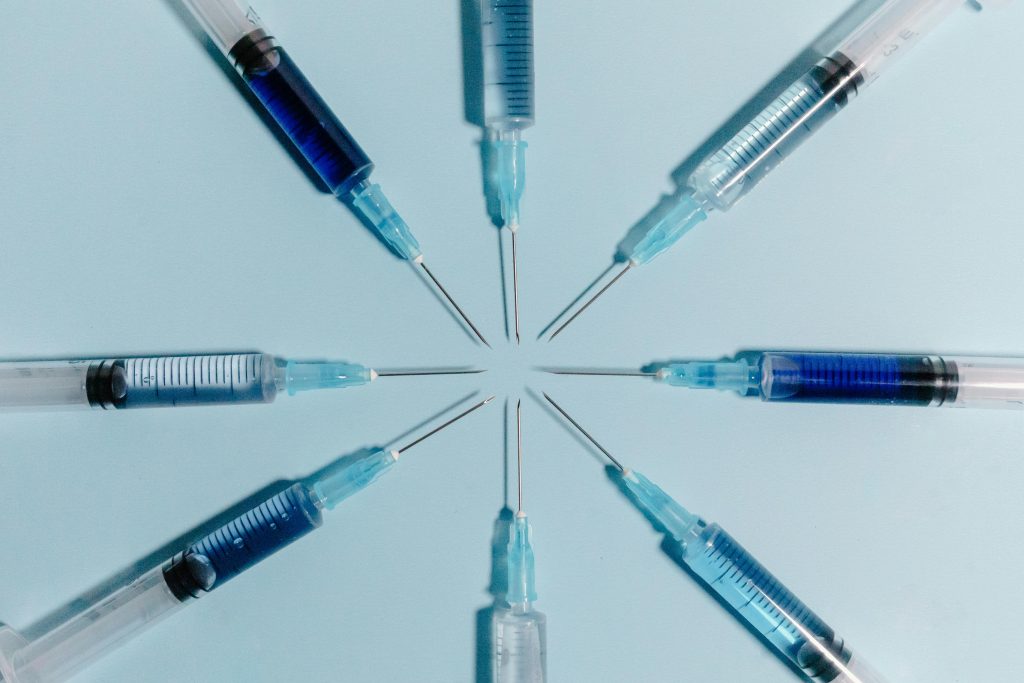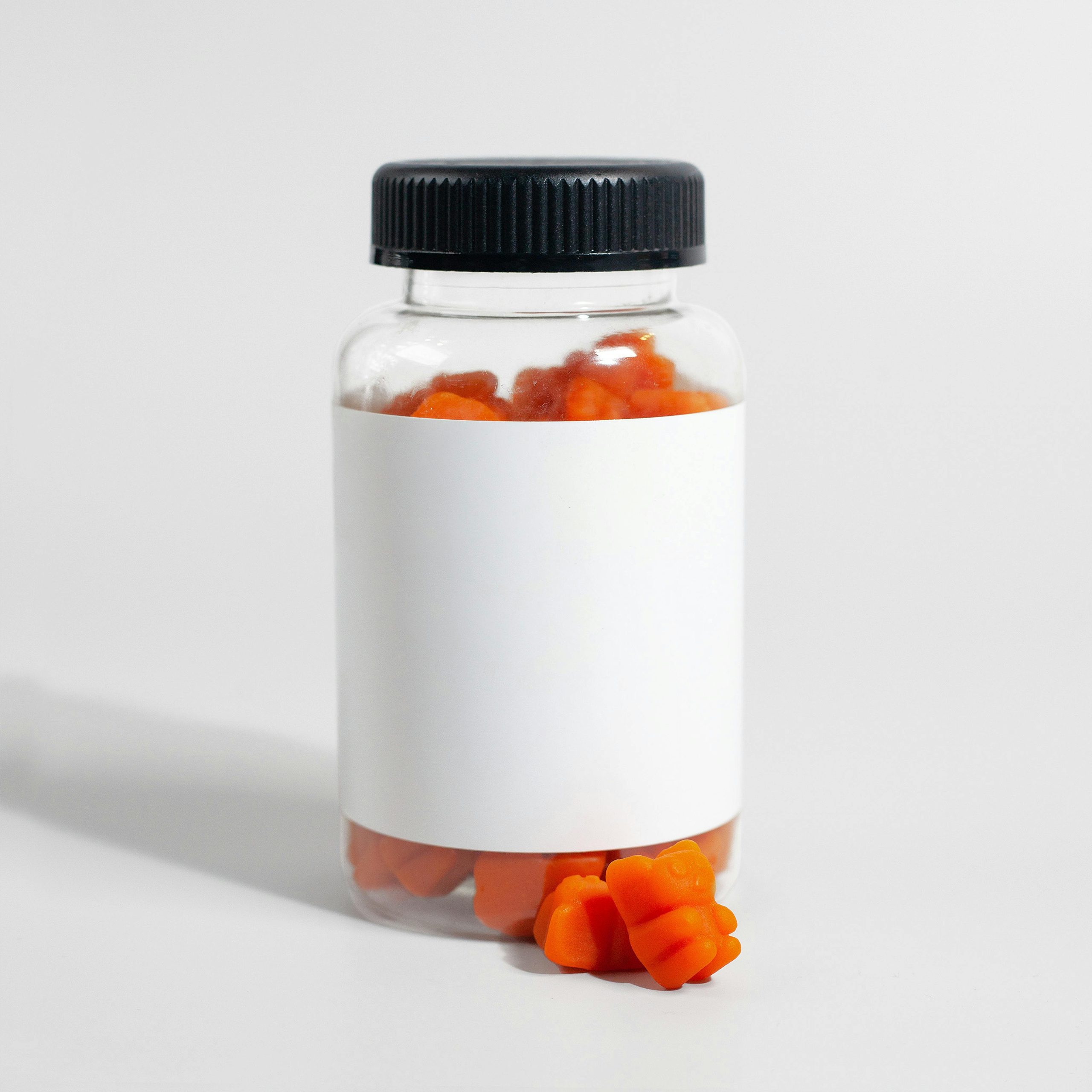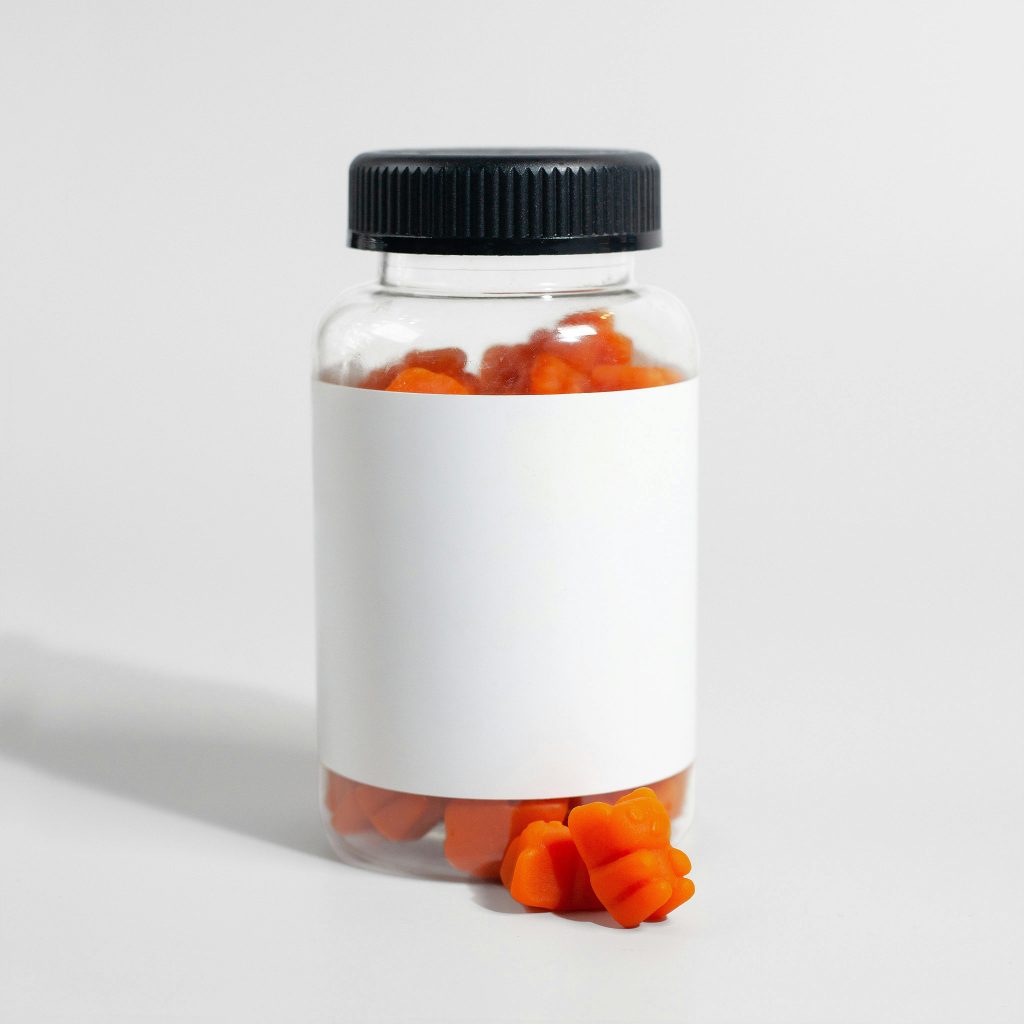Gelatin in medicines
This resource explains the use of gelatin in medicines and outlines the Islamic rulings on its permissibility.
What is gelatin and how is it used in medicines?
- Gelatin is a protein from collagen.
- Gelatin sources are often from bovine (cow) and porcine (pig) hide, skin, tendon, bone, and cartilage, and on some occasions, fish skin and scales can be used.1
- Gelatin has gelling, stabilizing and thickening properties and is mainly used in medicines to make the following1 2:
🕌 Islamic ruling on gelatin
| Source | Ruling |
|---|---|
| Bovine (cow) (Islamically slaughtered) (including its skin, bones, connective tissue) | ✅Halal (Hanafi,Maliki, Shafiʿi and Hanbali) |
| Bovine (cow) (not Islamically slaughtered) (including its skin, connective tissue) | ❌Majority consider haram* according to all four schools of thought (Hanafi,Maliki, Shafiʿi, Hanbali) |
| Bovine (cow) hide (not Islamically slaughtered animal that has undergone the tanning process**) | ❌Majority consider haram* according to all four schools of thought (Hanafi,Maliki, Shafiʿi, Hanbali) |
| Dry bone of any halal animal (not Islamically slaughtered) | ✅Halal according to the Hanafi school of thought Some scholars say this would be permissible because there is no blood in dry bone. ❌Haram to consume according the Maliki, Shafiʿi, Hanbali schools of thought. |
| Sheep (Islamically slaughtered) | ✅Halal (Hanafi,Maliki, Shafiʿi and Hanbali) |
| Sheep (not Islamically slaughtered) | ❌Majority consider haram* according to all four schools of thought (Hanafi,Maliki, Shafiʿi, Hanbali) |
| Porcine (pig) | ❌Majority consider haram* according to all four schools of thought (Hanafi,Maliki, Shafiʿi, Hanbali) |
| Fish | ✅Halal (Hanafi,Maliki, Shafiʿi and Hanbali) |
✅All four schools of thought (Hanafi, Maliki, Shafiʿi and Hanbali) agree that gelatin derived from the following are halal:
- Bovine (cow) (Islamically slaughtered) (including its skin, bones, connective tissue)
- Sheep (Islamically slaughtered)
- Fish
There is a difference of opinion on dry bone of any halal animal (not Islamically slaughtered).
❌The majority among the four schools of thought consider the following sources haram*,
- Bovine (cow) (not Islamically slaughtered) (including its skin, connective tissue).
- Bovine (cow) hide (not Islamically slaughtered animal that has undergone the tanning process**)
- Sheep (not Islamically slaughtered)
- Porcine (pig)3
*However, there is a difference of opinion as some Islamic scholars say if the gelatin undergoes transformation (istihala), it may be considered legally pure (tahir) and halal. The majority do not agree that transformation takes place. This allows for some flexibility but this is a minor opinon.
If you are unsure about taking or using medicines containing ingredients and/or excipients from haram sources, seek guidance from a practising Muslim HCP such as a pharmacist or doctor. Alternatively, consult your local Imam or a trusted Islamic scholar, ideally one who has knowledge and expertise in the fiqh (Islamic rulings) of medicine.
For a more detailed explanation regarding the reasons behind these rulings, including istihala, differences of opinions and some contemporary fatwas, click the button below.
**Tanning process – the process that treats the collagen in animal skin and hides with a chemical agent to make leather4
💭Did you know?
Even if a medicine contains an ingredient/excipient from a haram source, it may still be permitted in certain cases. Here are three key Islamic legal maxims (principles):
- Medical need or necessity (hajah and darurah): Under this principle, if there is a medical necessity, such as an emergency situation, or where there is a strong chance the individual’s health will deteriorate, and if no viable halal alternative is available, then it is permitted to take a medicine containing gelatin derived from haram sources, until a viable halal alternative becomes available.
- An impermissible medicine becomes permissible if five conditions are fully met (click here to learn what the five conditions are).
- Hardship begets facility (al-mashaqqa tajlib at-taysir): Under this principle, if applying religious practice becomes too burdensome or creates hardship, then leniency can be applied to ease it (Click here to read more). If you have tried your best to seek an alternative halal medicine and it becomes too difficult for you, this principle allows you to take/use the medicine you have been prescribed/supplied.
⚠️ Important information for patients
- Always take or use your medicine(s) exactly as directed or prescribed by your healthcare professional (HCP), such as your doctor or pharmacist
- Do not stop, delay, change or alter the way you take or use your medicine(s) without first discussing it with the HCP who prescribed or supplied it to you
- Always consult your HCP if you have any questions or before making any decisions about your treatment
- For Islamic guidance, seek advice from your local Imam or a trusted Islamic scholar – ideally someone with relevant knowledge and expertise in the fiqh (Islamic rulings) of medicines
- Use the information gathered to make an informed decision together with your HCP and, if needed, your local Imam or trusted Islamic scholar.
FAQs
Disclaimer
- This resource is for educational purposes only – it is not clinical, medical or professional healthcare advice and it does not replace clinical judgement or religious guidance
- Always consult your doctor, pharmacist, or healthcare provider about your own medical conditions or for treatment advice
- Healthcare professionals remain responsible and accountable for their own practice.
References and resources
- Department for Environment, Food & Rural Affairs Import of gelatine and collagen for human consumption – Import Information Note (IIN) BLGC/1
https://www.gov.uk/government/publications/gelatine-and-collagen-for-human-consumption-import-information-notes/import-of-gelatine-and-collagen-for-human-consumption-import-information-note-iin-blgc1 ↩︎ - UK Health Security agency Vaccines and porcine gelatine
https://www.gov.uk/government/publications/vaccines-and-porcine-gelatine/vaccines-and-porcine-gelatine ↩︎ - Comprehensive List of 40 Animal-Derived Excipients in Medication by Shaykh Dr Rafaqat Rashid ↩︎
- Benedict Nnachi Alum (2024). Tannins and Leather: Chemistry, Tanning Processes, and Environmental Impacts. NEWPORT INTERNATIONAL JOURNAL OF SCIENTIFIC AND EXPERIMENTAL SCIENCES, 5(3):33-37. https://doi.org/10.59298/NIJSES/2024/10.5.333337 ↩︎


